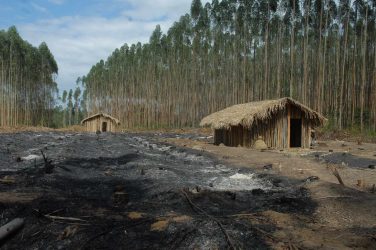 The new Brazilian government is proposing a law that would expand the working day for temporary workers from 8 to 12 hours. The announcement was made by the head of the Labor Ministry, Ronaldo Nogueira, who indicated that the average 44-hour working week day will remain.
The new Brazilian government is proposing a law that would expand the working day for temporary workers from 8 to 12 hours. The announcement was made by the head of the Labor Ministry, Ronaldo Nogueira, who indicated that the average 44-hour working week day will remain.
Nogueira told a local radio in São Paulo that the goal of the project is to end “labor trials tormenting” businessmen in the country.
This is one of the measures that the government of President Michel Temer proposed to change once he took office, after Dilma Rousseff was ousted.
“There are workers who prefer to work more in the week and have Saturday off,” said Nogueira after presenting the proposal to workers union representatives last night in Brasília.

The Unified Workers’ Central, the main trade union of Brazil has criticized the measure and is calling for a general strike against Temer’s neoliberal reforms for December 22. “The coup was done for this, to take away rights,” said Vagner Freitas, president of the union.
“Part of the proposal package is based on temporary contracts of the Spanish model, which allows hiring and firing within the law and social security contributions for specific functions without leaving any possibility for labor lawsuits,” a government spokesperson told Telam.
The Temer government labor reforms have also been criticized by the National Confederation of Industry and the Federation of Industries of Sao Paulo.
Boos and Jeers
Newly-installed Brazilian President Michel Temer was “welcomed” by boos and jeers when he arrived for the opening ceremony of the Paralympics in Rio de Janeiro, and at an Independence Day rally.
There were protests in 24 of Brazil’s 26 states, including Brasilia, where an estimated 600 protesters greeted Temer with calls of “Fora, Temer!” (Out, Temer!) and “Usurper” for his role in the ousting and eventual impeachment of former Brazilian President Dilma Rousseff.
Aline Piva, an activist with the pro-Rousseff organization Brazilian Expats for Democracy, told reporters that the anger now directed at Temer is a result of a rising consciousness amongst Brazilians about a “soft” coup that has caused a shift in Brazilian politics.
“What we’re seeing now is the protests against the Temer government are rising,” she said. “[Protests] are bigger now than they were during the impeachment process. In my opinion, what is happening right now is that people who were against Dilma and against the Worker’s Party are now realizing that they were the victims of a staged coup. And they are now joining those who are protesting all the time.”
Piva suggested that the only way Temer could deflect criticism would be to successfully overhaul the Brazilian economy, currently suffering its worst recession in almost a century.
“If he manages to get the Brazilian economy up and running again, maybe this could change, but I don’t think so,” she said. “He is trying to implement changes in labor laws and social programs that will directly affect many Brazilians, especially young people who are now entering the workforce. I think the tendency will be for Temer to be more and more unpopular.”
She observed that it will take more than sentiment to remove Temer, as much of his support comes from the same conservative elements that helped orchestrate Rousseff’s expulsion.
“I don’t think his unpopularity necessarily means we’ll be able to get him out of government because he has the support of the traditional political establishment and from the big money interests.”
Prensa Latina/Sputnik









